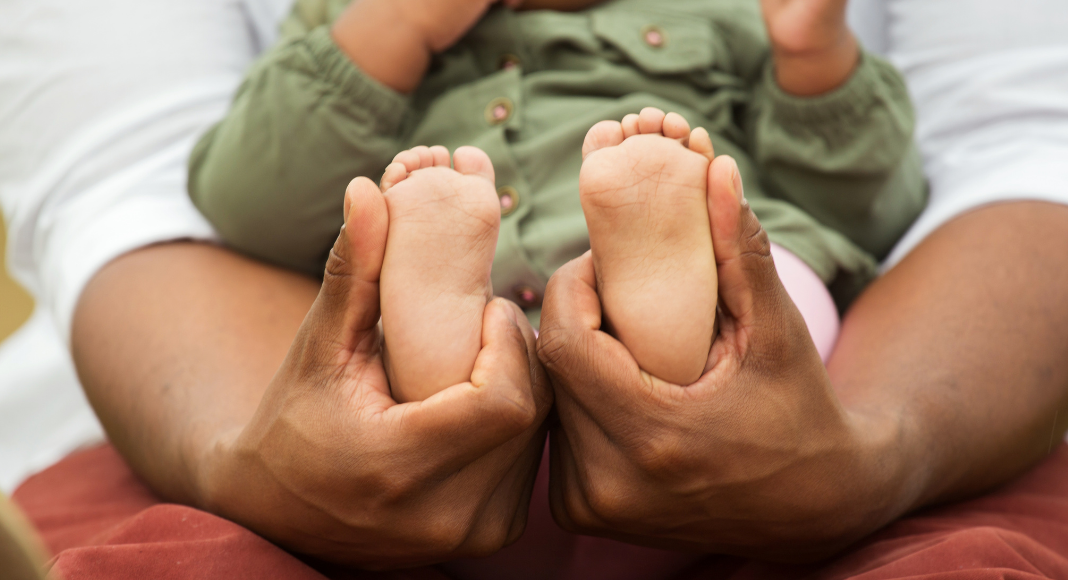LGBTQ+ people rarely become parents by accident and embark on a fertility journey. According to Sara List, queer mom of two and award-winning writer, it is difficult “Without a lot of deliberation and planning, though it certainly can happen.” And people on their fertility journey can only hope to become parents without intervention. So why do many of these parents experience intense negative feelings – shame, anxiety and even guilt – once they finally have the child of their dreams?
Intentionality to become parents
By definition, “intentionality” means there’s a deliberate purpose for an action. There is a reason; a desire for a certain outcome. For those who are struggling or actively trying to become parents, whether through adoption, surrogacy or IVF, there is intentionality. Many years and thousands of dollars are spent on one’s fertility journey. Not only are there interventions, paperwork, and appointments; so much time is spent thinking, planning, praying and hoping on this singular focus.
Reality vs. expectations after fertility journey
Sometimes with this intentionality comes the expectation that the reality of parenthood will match their dreams and efforts they put in to achieving it. After all, they didn’t just go through this long rollercoaster ride only to be unhappy once their child finally arrived! Yet, sometimes that’s exactly what happens. Although temporary, it’s a hard reality to live with, much less admit. So why does this happen and what can be done about it?
Dr. Deborah Simmons, an Infertility and Pregnancy Loss Consultant and Therapist, hears this sentiment from many of her clients.
Infertility is a multi-year grieving process. It doesn’t vanish when you finally have a family.
These parents may feel as if they “should” know what to do since they had the luxury of time to read, learn and prepare. Or they may have the fantasy, aided by social media, that “everyone else knows what to do”. This may cause them to feel shame about not knowing how to soothe their crying baby, get through a diaper change with less than 10 wipes, or make time for their own shower. There are many myths that new parents can easily fall prey to because all new parents are vulnerable. And these new parents, in particular, are raw. But the truth is: parenting is all about trial and error.
A new baby changes our lives
Because of the typical lengthy process of IVF or adopting a baby, there is so much time spent working, sleeping, eating and socializing, all without a baby in tow. Therefore, it’s easy to get accustomed to life without a baby. Your work schedule, free time, and life are under your control without having to consider the needs of a child. Once you bring your baby home, the loss of your previous life can feel like a shock. However prepared you thought you’d be simply does not measure up to the reality. Sleep deprivation, the worry over this new little person, hunger, a messy house, and other daily responsibilities all take on new meaning. Anxiety has a lot of space to roam.
 Irrational and valid feelings after bringing baby home
Irrational and valid feelings after bringing baby home
Successfully bringing home a child can make many new parents feel guilty. Guilty that others, possibly even friends they’ve made along their fertility journey, are still trying and yearning for a baby to call their own. They may also feel guilty that they’re not enjoying every moment with their long-awaited baby, or that that they can’t do it alone and need help. These feelings of guilt are irrational of course, but are real and powerful, nevertheless.
LGBTQ+ parents may have other issues to contend with as well. Feelings of inequality or less of an attachment to the baby is common if one partner gave birth, is breastfeeding or is staying home to provide childcare. Negotiating new parental roles or responsibilities and dealing with their own queer identities are just some of the additional struggles unique to the LGBTQ+ community.
To combat these feelings of anxiety, shame or guilt, new parents can lean in to these tools for help during their fertility journey. Here are some recommended ideas:
- Join a support group for queer parents or for parents during your fertility journey.
- Seek out a mental health provider, specializing in these new parent issues.
- Hire a postpartum doula, with training on trauma-informed support, to help in your home.
- Delegate household chores and errands to family or friends who want to help.
- Get your own needs met.
- And always remember to be kind to yourself, just as you would a friend.
About our Guest Author:
Bonni Berger is a postpartum doula, lactation counselor, and freelance writer. Her work has been published in Kveller, BLUNTmoms, GrownandFlown, DC Area Moms, and Bethesda Magazine. She can be found in the suburbs of Washington D.C. and at www.bethesdadoula.com where she is loving the fourth trimester alongside her new-mom clients.










![Lauren Engler: Mom of the Month [April 2024]](https://dcmoms.com/wp-content/uploads/2024/04/Lauren-Engler-218x150.png)



